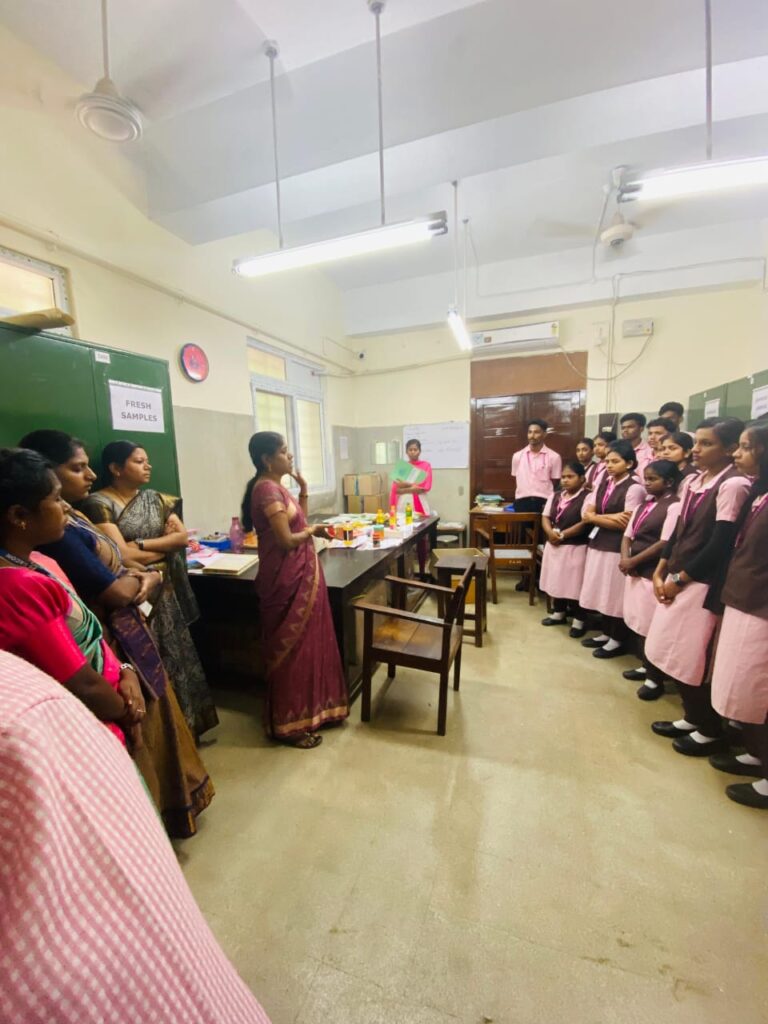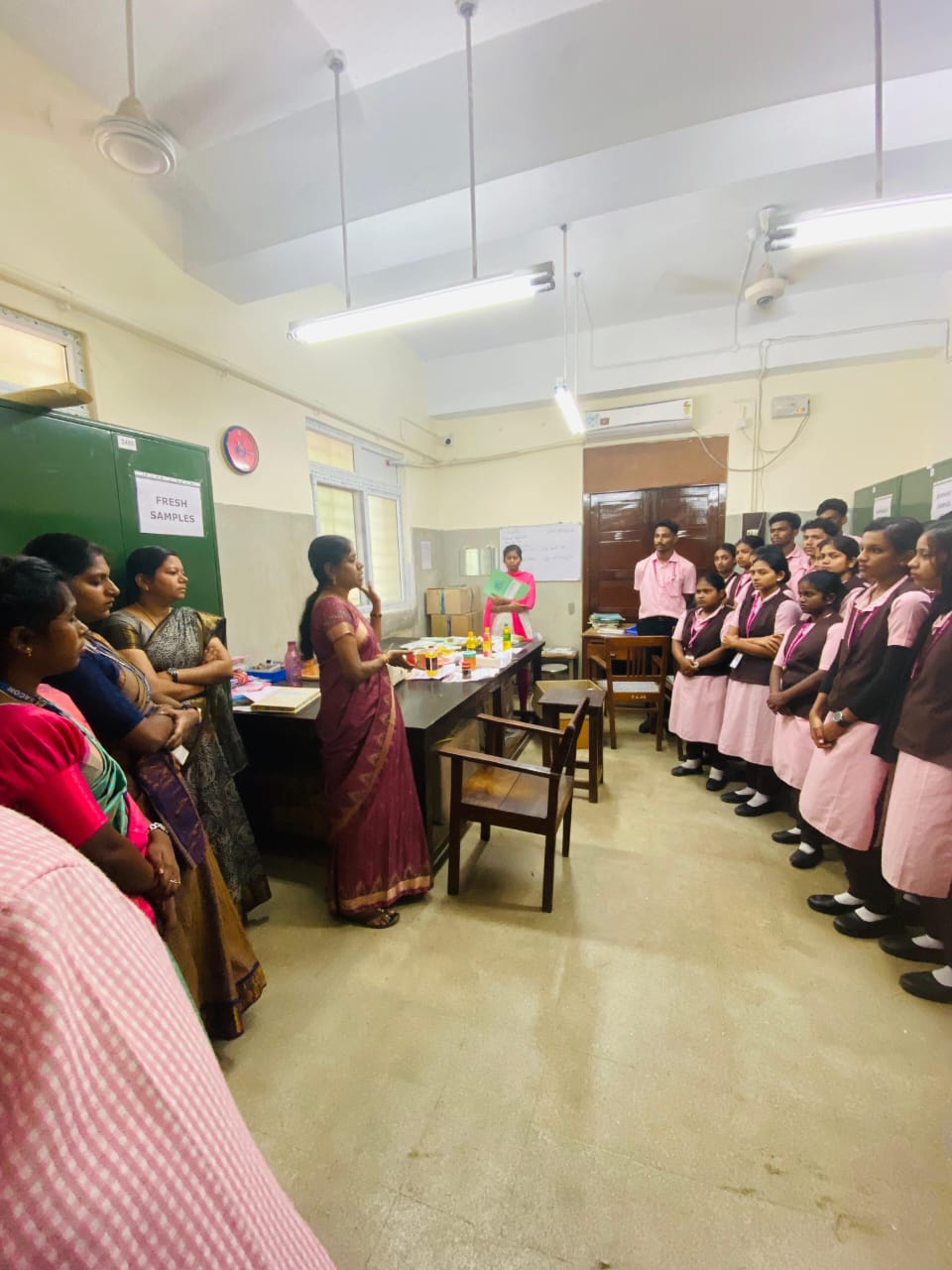
Sree Abirami School of Nursing – Field Visit to the Food Adulteration Department (DDHS), Coimbatore
Date: 24th June 2025
To enhance practical learning and community-oriented awareness, Sree Abirami School of Nursing, Coimbatore, organized an educational field visit for its first-year GNM students to the Food Adulteration Department under the Deputy Director of Health Services (DDHS), Coimbatore, on 24th June 2025. This initiative reflected the institution’s ongoing commitment to exposing nursing students to real-world healthcare issues beyond the clinical environment.
The Food Adulteration Department plays a vital role in safeguarding public health by ensuring the quality and safety of food products consumed by the general population. It operates under the guidelines of the Food Safety and Standards Authority of India (FSSAI) and is responsible for enforcing food safety laws, inspecting food vendors and manufacturers, collecting food samples, and spreading awareness about the risks of food adulteration.
A total of 35 students and 2 faculty members—Ms. Amutha and Mrs. Saranya—participated in the visit. The visit began at 12:30 PM with formal approval and warm support from the DDHS Office. Upon arrival, students were greeted by department officials and guided through a well-structured orientation session by the Food Safety Officer.
The orientation covered the concepts of intentional and incidental adulteration—explaining how substances are either deliberately or accidentally added to food items, leading to serious health concerns. Common examples included chalk powder in flour, starch in milk, and synthetic dyes in spices. Students were introduced to various types of adulterants found in daily food items such as grains, oils, tea leaves, and beverages.
One of the key highlights of the visit was the live demonstration of food adulteration detection techniques. Simple yet effective chemical testing methods were demonstrated using household and laboratory reagents like iodine, silver nitrate, and hydrochloric acid. These tests showcased how starch in milk, brick powder in chili powder, or soap in oil could be identified using rapid color reactions. Students were fascinated to see how everyday kitchen items could be tested for purity in practical, low-cost ways.
The officials also introduced the legal framework that governs food safety in India, focusing on the Food Safety and Standards Act, 2006. They elaborated on how food inspectors collect samples from vendors, the protocol for laboratory testing, and the legal proceedings initiated against violators. This provided students with a comprehensive understanding of how laws are enforced to ensure public food safety.
In a supplementary session, representatives from the Public Health Department spoke about the department’s outreach initiatives aimed at increasing consumer awareness. These included market inspections, vendor education programs, street campaigns, and consumer rights awareness sessions. The goal was not just regulatory enforcement but also educating the public on how to identify and avoid adulterated food.
Throughout the visit, the students maintained keen interest and actively participated in discussions, asking thoughtful questions about the detection methods and legal process. The field visit proved to be highly interactive, bridging the gap between classroom learning and real-world public health responsibilities.
This educational exposure significantly enriched the students’ understanding of food safety and the critical role played by public health professionals in preventing foodborne illnesses. It also helped students recognize their future role as nurses in educating communities about hygienic food practices and encouraging awareness around food quality.
In conclusion, the field visit to the Food Adulteration Department – DDHS, Coimbatore was not only educational but also empowering. It reminded students that healthcare begins beyond hospitals—within the homes, markets, and communities they serve. Sree Abirami School of Nursing continues to integrate such field-based learning opportunities to ensure its students grow into well-informed, community-conscious healthcare professionals.
